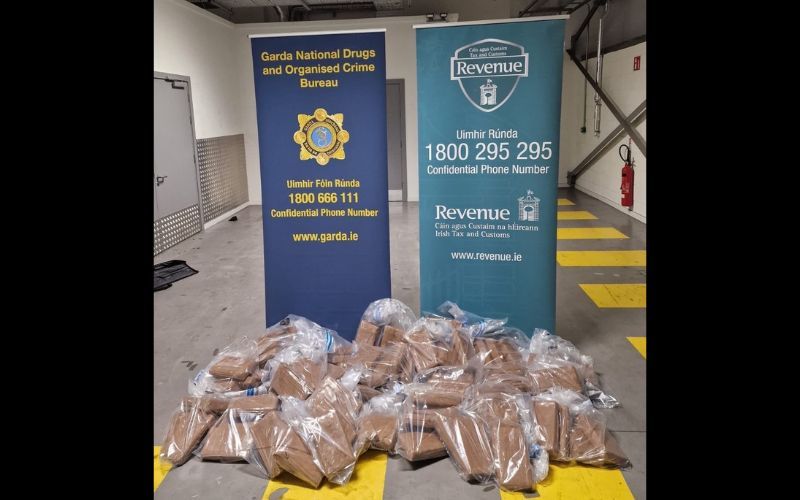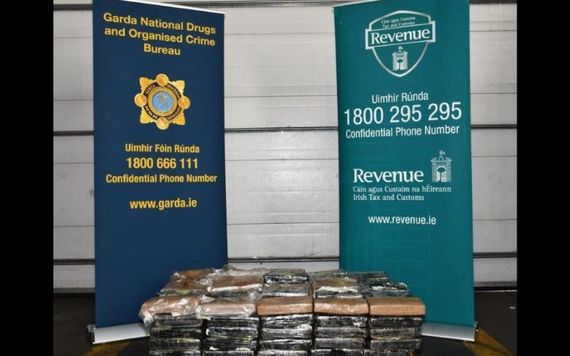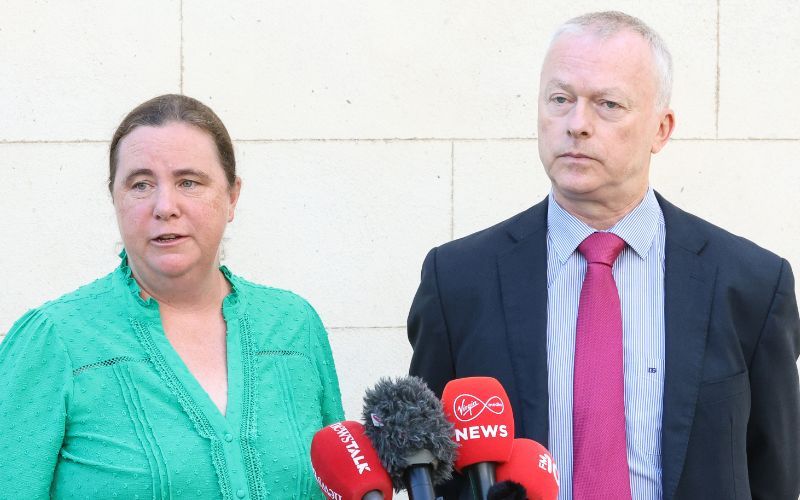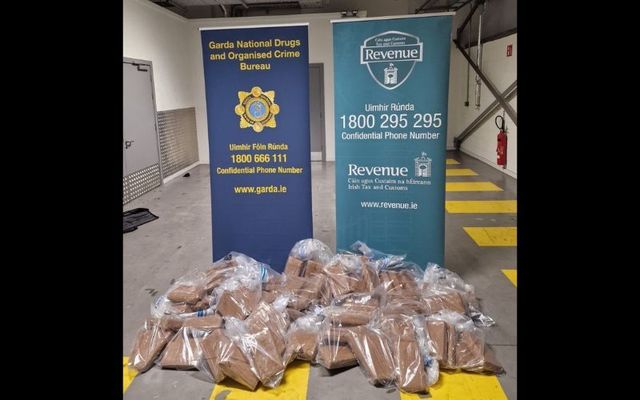After two major drug seizures in the past week, Irish authorities discussed how they continue to respond to illegal drug importations into Ireland.
On Thursday, August 8, as part of an intelligence-led operation, Revenue officers seized approximately 104 kg of cocaine with an estimated value of €7.2 million, at Rosslare Europort in Co Wexford.
The seizure was made as a result of a joint operation conducted by Revenue’s Customs Service and the Garda National Drugs and Organised Crime Bureau (GNDOCB).
Two men were arrested on Friday but were released later that day without charge. Investigations are ongoing.

Drug seizure at Rosslare Europort in Co Wexford. (An Garda Siochana)
Just a few days later, on Tuesday, August 13, approximately 150kgs of suspected cocaine with an estimated value of €10.5 million was seized at Dublin Port as part of a joint operation involving the Garda National Drugs and Organised Crime Bureau (GNDOCB) and Revenue Customs Service.
Investigations are ongoing.

Drug seizure at Rosslare Europort in Co Wexford. (An Garda Siochana)
On Wednesday, Séamus Boland, Detective Chief Superintendent of the GNDOCB, and Ruth Kennedy, the Revenue Commissioner, spoke to the media regarding the two massive drug seizures this week.
Boland praised the "collaborative, proactive, investigative" work that is ongoing amongst An Garda Síochána, the Garda National Drug and Organised Crime Bureau at the national level, and the Revenue Commissioner’s Customs Service.
The work, he said, is "continuing to have significant results as we target and identify high-value targets, particularly those who are involved in logistics and those who are attempting to exploit our ports of entry into the State.
“It’s very important, from our perspective, that we counteract the people who are going to try and exploit Ireland and the importation - particularly of cocaine and significantly dangerous drugs - into this jurisdiction and into Europe.
“The results and seizures that have been made in recent times - not only this weekend but over the last 12 months - I think is an indication of where Ireland is standing up to that challenge and we continue to conduct those investigations.”
Meanwhile, Kennedy said a key priority for Revenue is " identifying, targeting, and disrupting the illegal drugs trade."
She said: "We do that by developing and sharing intelligence both at a national level with An Garda Síochána but also at an EU-wide level and an international level because this illegal drugs trade is a global problem and one that we have to address by working collaboratively with both our national and international partners.”
Kennedy said Revenue has enforcement staff at all the major airports, ports, mail centers, and freight forwarders. Staff, along with technology, "allow us to disrupt the routes that the international crime gangs are using."
Additionally, Revenue has a maritime front and two cutters that patrol the oceans "and work again in collaboration with our joint taskforce and we saw that in a major seizure we had last year on board the MV Matthew."
Kennedy continued: "Results this year have been very good and we've made some significant seizures, but these seizures are important to keeping the product out of the country and out of the community."
She noted the "devastating impact" that such products can have on communities and society, and how seizures keep the product off the streets.
She further said how authorities must remain agile in their responses as crime gangs can change their tactics.

August 14, 2024: Ruth Kennedy and Seamus Boland address the press. (RollingNews.ie)
Boland went on to highlight how any occasion where significant quantities of cocaine are taken out of the industry and not making it into communities is "very positive."
He said these kinds of seizures "can actually dismantle a route into the country and have a significant impact on the global networks that are involved in this, so it is a positive."
Boland said the "liaison network" Irish authorities have around the world is extremely important as "it's no longer about just what's happening on the island of Ireland or within our jurisdiction, we must target the decision makers, the enablers, the facilitators, the money launders."
Boland said according to European reports, cocaine is the most abused drug across Europe, behind cannabis.
However, he said it is widely acknowledged that cocaine is "unique" due to the volume of money it generates and how "cocaine use, or abuse, spans across all sections of society."
He said: "It's not just the vulnerable people in our society who are affected by cocaine, the problem is it's all groups in society are using cocaine, the willingness to use it, the acceptance to use it in people's comfortable lives, taking absolutely no responsibility for where that money goes [or] what the outcome is.
"Every penny being paid over for using cocaine - irrespective of how comfortable that environment is a person is using it - feeds back into the most violent crime groups in this jurisdiction and across Europe."




Comments